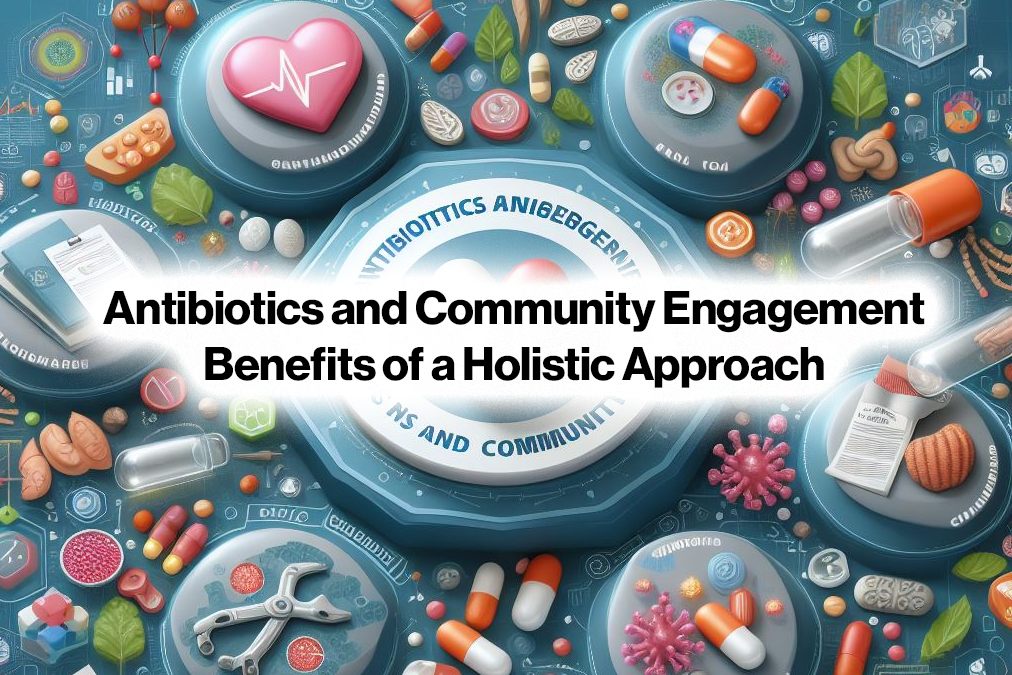In today’s rapidly evolving world, the healthcare landscape is constantly changing. As advancements in medical science continue to reshape the way we approach various health issues, it’s crucial to recognize the interconnectedness of medical treatments and community engagement. This article delves deep into the symbiotic relationship between antibiotics and community engagement, highlighting the undeniable benefits of a holistic approach.
The Antibiotic Conundrum: A Brief Overview
Antibiotics, hailed as one of the greatest medical discoveries of the 20th century, have revolutionized healthcare by saving countless lives from infectious diseases. These powerful medications work by targeting and eliminating harmful bacteria that can lead to severe illnesses. However, their widespread use has raised concerns about antibiotic resistance – a phenomenon where bacteria evolve to withstand the effects of antibiotics, rendering them ineffective.
A Fresh Perspective: The Role of Community Engagement
In recent years, healthcare professionals and researchers have begun to emphasize the importance of community engagement in tackling the antibiotic resistance crisis. Community engagement refers to the active involvement of individuals, families, and communities in their healthcare decisions, as well as the broader issues that affect public health. This approach recognizes that addressing complex medical challenges requires a collective effort.
1. Education as Empowerment
Empowering communities with knowledge about antibiotics, their proper usage, and the consequences of misuse can significantly contribute to curbing antibiotic resistance. Through informative workshops, seminars, and accessible online resources, individuals can make informed decisions about their health and understand the vital role they play in preserving the effectiveness of antibiotics for future generations.
2. Raising Awareness and Accountability
Community engagement campaigns play a pivotal role in raising awareness about the implications of antibiotic resistance. By fostering a sense of responsibility within communities, individuals are more likely to adhere to prescribed antibiotic regimens, avoid self-medication, and promptly report any adverse effects to healthcare providers. This collective responsibility helps create a safer environment for everyone.
3. Encouraging Sustainable Practices
Communities can actively contribute to the fight against antibiotic resistance by adopting sustainable practices in agriculture, livestock management, and waste disposal. Antibiotics are extensively used in these sectors, leading to the proliferation of antibiotic-resistant bacteria in the environment. By promoting eco-friendly alternatives and responsible antibiotic use, communities can mitigate the environmental impact of antibiotics.
A Synergistic Approach: Healthcare Providers and Communities
The success of combating antibiotic resistance relies on a strong partnership between healthcare providers and the communities they serve. This synergy fosters a comprehensive approach to healthcare that goes beyond medical treatment alone. Here’s how healthcare providers and communities can collaborate effectively:
1. Tailored Treatment Plans
Healthcare providers can work closely with communities to develop personalized treatment plans that address specific health needs. By considering factors such as lifestyle, environment, and cultural preferences, healthcare professionals can prescribe antibiotics more judiciously, reducing the likelihood of resistance.
2. Continuous Monitoring and Data Sharing
Regular health screenings and data sharing between healthcare providers and communities are essential components of a proactive approach. By tracking antibiotic usage patterns and monitoring resistance trends, medical professionals can adapt treatment strategies in real time, ensuring the most effective care.
3. Advocacy for Policy Changes
Collective community engagement can extend to advocating for policy changes at local and national levels. Communities can play an instrumental role in urging policymakers to implement regulations that promote responsible antibiotic use in healthcare, agriculture, and other relevant sectors.
The Future of Antibiotics and Community Engagement
As we navigate the complex challenges of antibiotic resistance, the synergy between antibiotics and community engagement emerges as a beacon of hope. This holistic approach acknowledges that the fight against antibiotic resistance extends beyond the confines of a clinical setting. By empowering individuals with knowledge, fostering accountability, and promoting sustainable practices, we can pave the way for a healthier future.

Leave a Reply